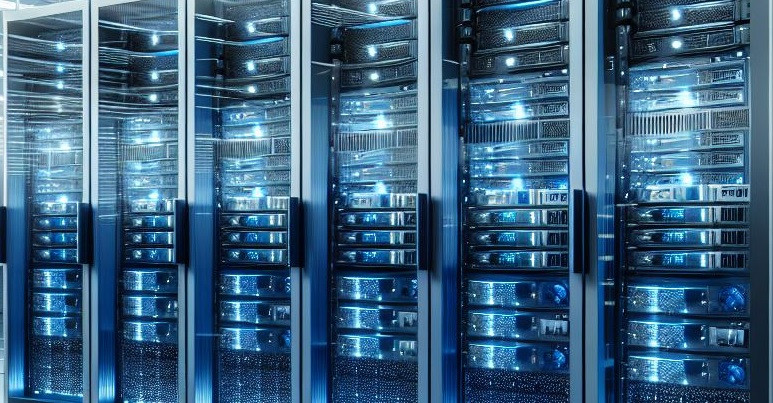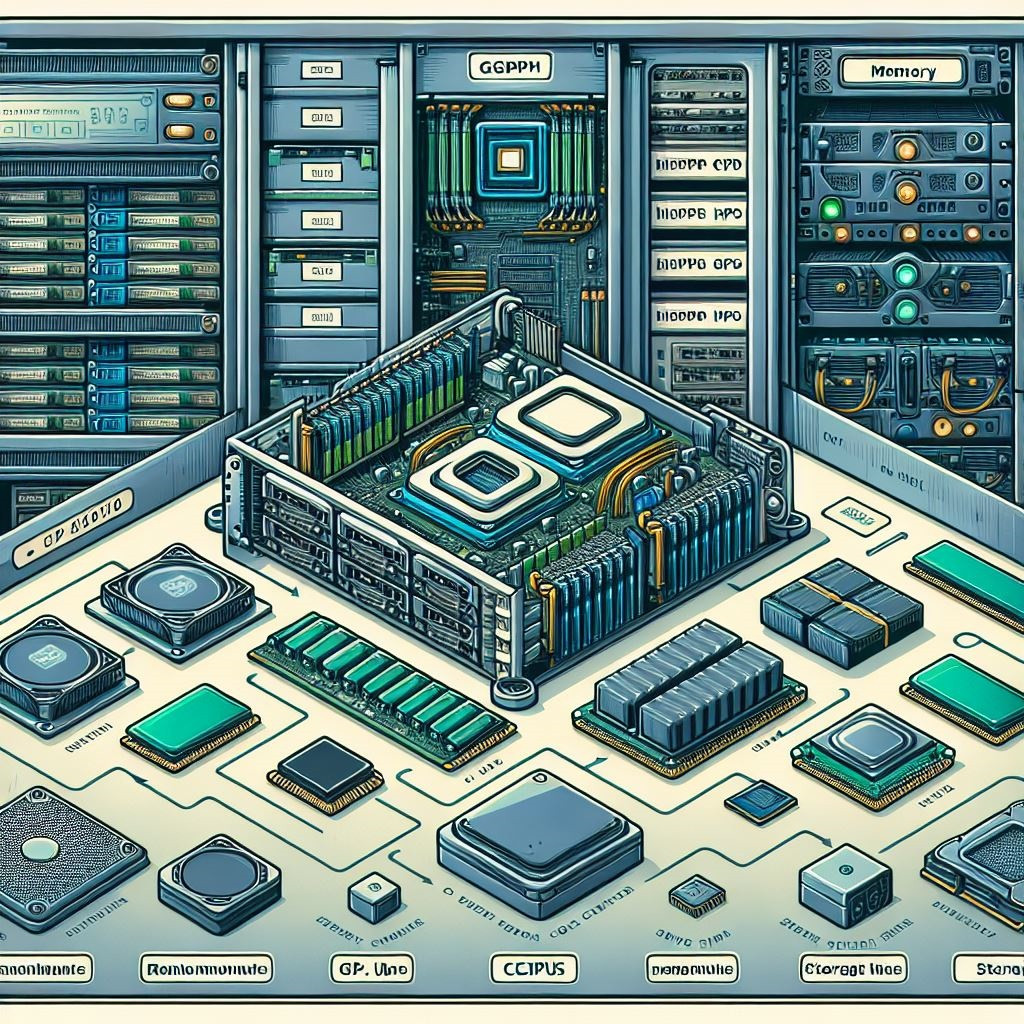What is High-Performance Computing (HPC)?
HPC is like having a supercharged computer system that can handle very large and complex tasks quickly. Imagine trying to solve a giant puzzle. A regular computer might take a long time to put all the pieces together, but an HPC system can solve it much faster by using many powerful processors working together.

How Does HPC Work?
Massively Parallel Computing
Think of a regular computer as a single worker who completes tasks one by one. This is called serial computing. Now, imagine having a team of workers, each handling a different part of the task at the same time. This is parallel computing.
In HPC, we take this idea to the extreme with massively parallel computing. Instead of just a few workers, we have tens of thousands or even millions of processors working together. This allows HPC systems to tackle huge problems much faster than a single computer.
Key Technologies in HPC
• Message Passing Interface (MPI): Imagine a group of people working on a project. They need to communicate with each other to share information and coordinate their efforts. MPI is like a set of rules that helps these processors communicate efficiently.
• Remote Direct Memory Access (RDMA): Normally, when computers share data, they have to go through several steps, which can slow things down. RDMA allows computers to share data directly, skipping the usual steps and speeding up the process.
How to choose the right hardware for HPC?
Choosing the right hardware for High-Performance Computing (HPC) is crucial for achieving optimal performance and efficiency. Here are some key considerations and steps to guide you through the process:
1. Assess Your Computing Needs
• Workload Type: Identify the types of tasks your HPC system will handle, such as simulations, data analysis, or machine learning.
• Performance Requirements: Determine the required computational power, memory, storage, and network capabilities based on your workload.
2. Select the Right Processors
• CPU Cores and Clock Speed: Choose processors with multiple cores and high clock speeds to handle parallel processing efficiently. For example, Intel Xeon or AMD EPYC processors are popular choices for HPC.
• Accelerators: Consider using GPUs (Graphics Processing Units) or NPUs (Neural Processing Units) for tasks that benefit from parallel processing, such as deep learning and image processing.
3. Ensure Sufficient Memory
• RAM: Ensure each compute node has enough RAM to handle large datasets. A minimum of 2 GB per core is recommended, but more may be needed for memory-intensive tasks.
• Memory Bandwidth: High memory bandwidth is essential for fast data transfer between the processor and memory.
4. Choose Appropriate Storage Solutions
• Local Storage: Each compute node should have sufficient local storage for temporary data. SSDs (Solid State Drives) are preferred for their speed.
• Shared Storage: Use high-speed shared storage solutions like parallel file systems (e.g., Lustre) or Network-Attached Storage (NAS) for data that needs to be accessed by multiple nodes.
5. Optimize Network Configuration
• Network Topology: Choose a network topology that minimizes latency and maximizes bandwidth. Common topologies include fat-tree and torus networks.
• Network Adapters: Use high-speed network adapters (e.g., InfiniBand) to ensure fast data transfer between nodes.
6. Consider Power and Cooling Requirements
• Power Supply: Ensure your HPC system has a reliable power supply that can handle the high power consumption of multiple processors and accelerators.
• Cooling Solutions: Implement efficient cooling solutions to prevent overheating and ensure stable performance. Options include air cooling, liquid cooling, and immersion cooling.
7. Evaluate Hardware Compatibility
• Compatibility Lists: Refer to hardware compatibility lists provided by HPC software vendors to ensure your chosen components are supported.
• Benchmarking: Perform benchmarking tests to evaluate the performance of your chosen hardware configuration. Common benchmarks include LINPACK and HPC Challenge.
8. Plan for Scalability
• Modular Design: Design your HPC system with scalability in mind, allowing for easy addition of more compute nodes, storage, and network capacity as needed.
• Future-Proofing: Choose hardware that can accommodate future advancements in technology and increasing workload demands.
HPC Use Cases
Media and Entertainment: Creating special effects for movies requires processing huge amounts of data. HPC systems can render these effects much faster than regular computers.
Banking and Financial Services: Banks use HPC to run complex simulations and analyze large datasets to make better financial decisions and manage risks.
Government and Defense: HPC helps in simulating defense scenarios, analyzing satellite images, and processing large amounts of data for national security.
Education Sector for Research: Universities and research institutions use HPC to conduct advanced scientific research, such as climate modeling and genetic analysis.

